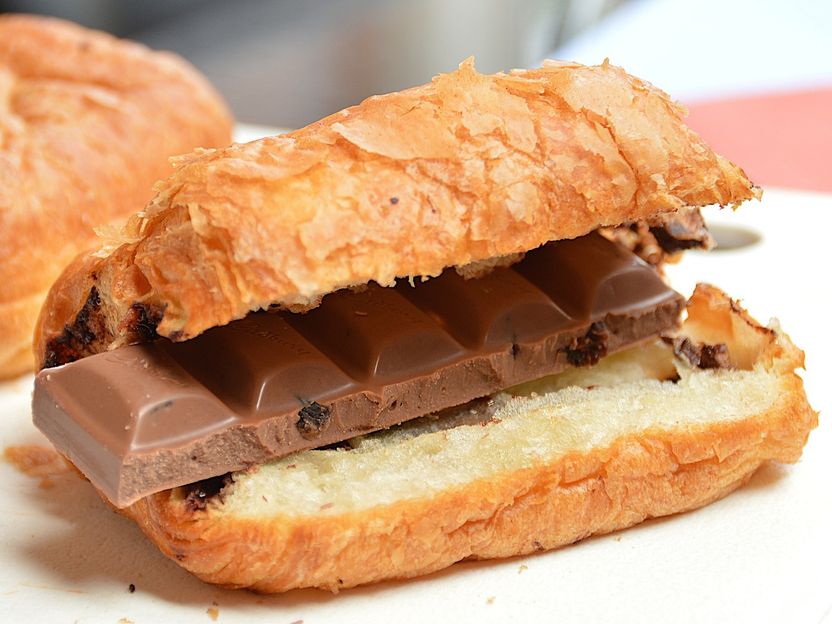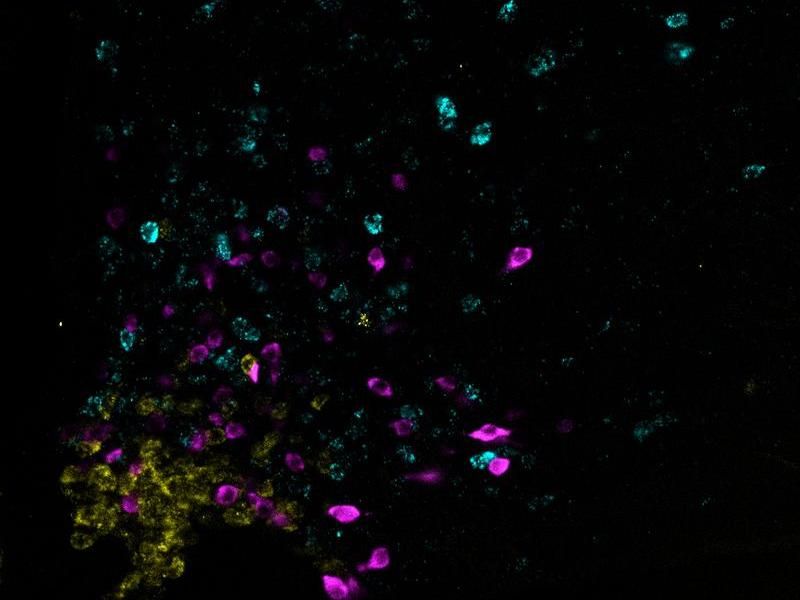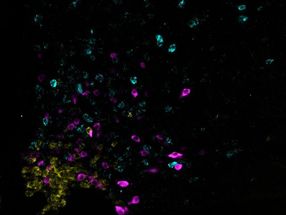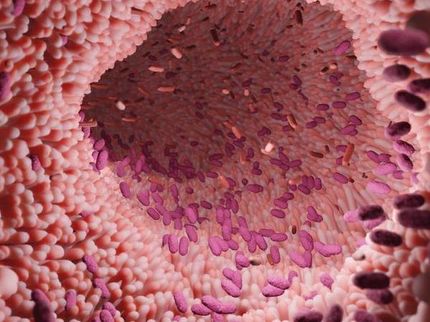Specialised nerve cells increase the appetite for high-fat foods
Does obesity start in the brain?
Advertisement
High-calorie, energy-dense foods are constantly available in our modern society. Researchers at the Max Planck Institute for Metabolism Research in Cologne have discovered that a group of nerve cells in the brains of mice promotes the consumption of high-fat food. If these so-called nociceptin neurons in the hypothalamus are activated, the animals start to eat more.

Films42/ Pixabay

There are several types of neurons in the arcuate nucleus of the hypothalamus that regulate our energy uptake. (cyan: nociceptin-expressing cells, yellow: AgRP cells, magenta: POMC cells).
Max Planck Institute for Metabolism Research


Since the 1980s, we are seeing a worldwide increase in obesity and associated diseases such as diabetes mellitus and cardiovascular disease. Researchers from the Max Planck Institute for Metabolism Research from the laboratory of Jens Brüning have used mice in animal studies to investigate which nerve cells control the overeating of high-calorie, energy dense food. For this purpose, the animals were fed a high-fat diet and examined afterwards." Just three days of a high-fat diet feeding were sufficient to detect increased activity of nociceptin neurons in a specific region of the brain, the arcuate nucleus of the hypothalamus," says Alexander Jais, first author of the current study.
In a set of experiments, nociceptin neurons of mice were selectively removed from the arcuate nucleus of the hypothalamus. As a result, these mice no longer "over-consumed" the high-fat diet. The intake of their normal food was not affected. The nociceptin neurons can therefore specifically control the intake of high-fat food.
Following up these findings, the researchers used genetically modified mice in which the activity of the nociceptin neurons in the hypothalamus could be controlled by light. "The activation of these brain cells led to an excessive food intake of the animals," Jais explains. "The activation of nociceptin neurons inhibits certain neurons which regulate satiety and therefore the animals ingest more food.”
Does obesity start in the brain?
Consumption of energy-dense food leads to a disruption of energy balance and to an increased intake of calories. "We are constantly surrounded by cheap, palatable, energy-dense foods and our brains are wired in such a way that we particularly prefer these foods," says Jais. "It is still not known why some people manage to eat only as much as they need and others do not. The individual activity of nociceptin neurons could be an important piece to the puzzle. Their activity promotes overconsumption, making them an attractive target for the prevention and treatment of obesity."
"The current Covid-19 pandemic reminds us that obesity and associated metabolic diseases, such as diabetes, are risk factors and therefore a better understanding of the central nervous system control of food intake is urgently needed, with particular emphasis on high-calorie, fat- and carbohydrate-rich foods," says Jais.
Original publication
Alexander Jais, Lars Paeger, Tamara Sotelo-Hitschfeld, Stephan Bremser, Melanie Prinzensteiner, Paul Klemm, Vasyl Mykytiuk, Pia J. M. Widdershooven, Anna Juliane Vesting, Katarzyna Grzelka, Marielle Minère, Anna Lena Cremer, Jie Xu, Tatiana Korotkova, Bradford B. Lowell, Hanns Ulrich Zeilhofer, Heiko Backes, Henning Fenselau, F. Thomas Wunderlich, Peter Kloppenburg, and Jens C. Brüning. PNOCARC Neurons Promote Hyperphagia and Obesity upon High Fat Diet Feeding. Neuron; April 2020



























































